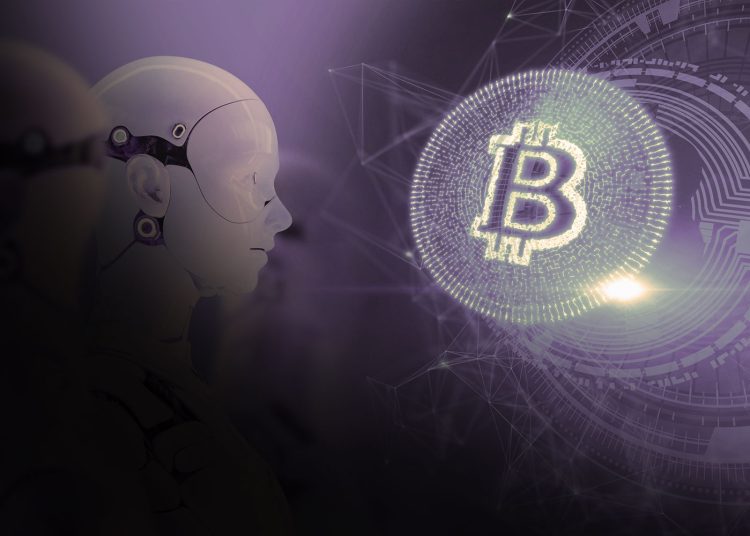Blockchain and artificial intelligence are portrayed as two potentially disruptive technologies that will revolutionize our daily lives this century. But does this view have any merit? How fundamentally true can it be? While there is no clear-cut answer to these questions, depending on how events unfold, a number of themes could attract attention.
Artificial intelligence and blockchain are being used in almost every field, industry, and business to increase efficiency, create new revenue streams, automate repetitive processes, and even eliminate human supervision for simple and difficult tasks.
How Is Artificial Intelligence Being Used In Blockchain Technology?
Artificial intelligence (AI) and blockchain technology are two rapidly evolving fields that have the potential to revolutionize many aspects of our lives. In recent years, there has been growing interest in the intersection of AI and blockchain, with many experts exploring how the two technologies can be used together. In this article, we will explore some of the ways in which AI is being used in blockchain technology.
Smart Contracts
One of the most promising areas of AI and blockchain integration is in the development of smart contracts. Smart contracts are self-executing contracts that are programmed to execute automatically when certain conditions are met. By integrating AI into smart contracts, developers can create more complex contracts that can adapt to changing conditions and make decisions based on real-time data.
Fraud Detection
Another area where AI is being used in blockchain technology is in fraud detection. Blockchain technology is inherently secure, but it is not foolproof. By using AI algorithms to analyze blockchain data, developers can identify potential fraudsters and take action to prevent fraud before it occurs.
Identity Verification
Identity verification is another area where AI and blockchain technology can be used together. By using AI algorithms to analyze biometric data, developers can create more secure and reliable identity verification systems that can be used in a variety of applications, including financial transactions and voting systems.

Supply Chain Management
Blockchain technology is already being used in supply chain management to track products from their origin to their final destination. By integrating AI into blockchain-based supply chain systems, developers can create more efficient and effective supply chains that can adapt to changing conditions and make decisions based on real-time data.
Data Privacy
Finally, AI and blockchain technology can be used together to enhance data privacy. By using blockchain technology to store and encrypt data, developers can create more secure data storage systems that are resistant to hacking and data breaches. By integrating AI algorithms into these systems, developers can create more efficient and effective data privacy systems that can adapt to changing conditions and make decisions based on real-time data.
The integration of AI and blockchain technology is an exciting development that has the potential to revolutionize many aspects of our lives. By leveraging the strengths of both technologies, developers can create more efficient, effective, and secure systems that can adapt to changing conditions and make decisions based on real-time data. While there are still many challenges to be overcome, the future looks bright for AI and blockchain technology.
Is The Artificial Intelligence (AI) Algorithm Suitable For Coins?
The question of whether AI algorithms are suitable for coins is a complex one that experts in the field of finance and technology have debated. In this article, we will explore the potential benefits and drawbacks of using AI algorithms for coins.
Benefits of Artificial Intelligence Algorithms for Coins
One of the main benefits of using AI algorithms for coins is their ability to analyze large amounts of data quickly and efficiently. AI algorithms can analyze market trends and predict future movements, helping investors make more informed decisions. Additionally, AI algorithms can help identify patterns and trends that humans may not be able to detect, potentially leading to more profitable investments.
Drawbacks of Artifical Intelligence (AI) Algorithms for Coins
One of the main drawbacks of using AI algorithms for coins is their reliance on historical data. While AI algorithms can make predictions based on past data, they may need to be able to accurately predict future market trends, particularly in unpredictable market conditions. Additionally, the use of AI algorithms for coins may lead to increased market volatility, as algorithms can trigger automated trades based on certain conditions, potentially leading to rapid and unexpected changes in the market.
The Importance of Human Oversight
It is important to note that while AI algorithms can be a valuable tool for analyzing coins, they should be used only in part. Human oversight is crucial to ensure that AI algorithms are functioning properly and that their predictions are in line with market trends. Additionally, human intuition and judgment can help to identify potential risks and opportunities that may not be detectable by algorithms alone.
The use of AI algorithms for coins is a complex issue that has both potential benefits and drawbacks. While AI algorithms can analyze large amounts of data quickly and efficiently, they may need help to accurately predict future market trends in unpredictable market conditions. Human oversight and judgment are crucial to ensure that AI algorithms function properly and that their predictions align with market trends. Ultimately, the use of AI algorithms for coins should be viewed as a tool to assist investors, rather than a replacement for human decision-making.
You may be interested in: The Number Of Transactions In The Solana Network Is Rapidly Decreasing











